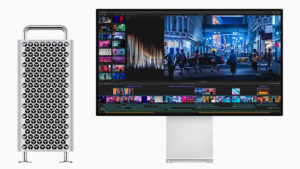In his opening Keynote at F8 2019, Mark Zuckerberg made this statement:”Today, we are going to talk about building a privacy-focused social platform. For a lot of us, the first superpower that the Internet gave us was the ability to connect with the whole world at once. It allowed emerging creators and entrepreneurs to find global audiences . But as our world has expanded, we face a new challenge. We all need to find our place in this much bigger world . It’s easier to feel like you belong when you are part of smaller communities amongst your closest friends. So, it’s no surprise that the fastest ways that we are all communicating online are private messages in small groups and in stories. So, that’s why I believe that the future is private.”While this vision includes Facebook’s much-anticipated answers to users’ concerns in terms of privacy (which are beyond the scope of this article), it also raises new questions for brands and businesses relying on the Facebook ecosystem to generate awareness, drive sales, and provide support to their customers.
Interestingly, connecting the dots between all the announcements made at Facebook’s 2019 developers conference draws a bright picture of what the future looks like for brands, small e-commerce stores, and new businesses using the Facebook family of apps. Spoiler: This includes a whole new world of opportunities that may lead to some potential new challenges in the long term, and reflects a broader trend of vertical integration happening across all major platforms.
Without further ado, let’s dive in.
Facebook’s Future: Stories, Groups, Private Messaging, Commerce
Stories: As I write these lines, there are more than 1 billion stories shared every day across the Facebook family of apps, namely Facebook, Instagram and WhatsApp (where a Story is called a “Status”), with 56 percent of people reporting that they use Stories on three or more platforms at least once a week.
It’s no wonder Facebook believes this format is here to stay and could have a long-term impact potentially as significant as — if not more than — the News Feed.
For brands, Stories provide a unique opportunity to inspire audiences to take gesture-based call to actions (swipe up) and trigger direct-response outcomes, thanks to a full-screen, distraction-free and immersive format, which is unparalleled on mobile.
Given that one in two people surveyed said they have visited a website to buy a product or service as a result of seeing it in Stories, the famous vertical, ephemeral format opens up virgin territories for online brands and e-commerce businesses.
Groups: With the upcoming release of FB5, Facebook is introducing the biggest evolution of its website and app in the past five years, with the ambition of making “communities as central as friends” by placing Groups at the center of the experience.
This will allow brands and businesses to join and engage with interest-based communities through content and events, thus interacting more intimately with the 400 million people who are currently members of meaningful Facebook Groups.
In an era when authenticity is more valuable than ever, this evolution provides a unique opportunity for organizations to transcend their traditional transactional role and stand out as experts, leading with purpose.
Private Messaging: During the Keynote on day one of F8 2019, Asha Sharma, who leads the Messenger product team, announced the upcoming interoperability of Facebook Messenger, Instagram Direct and WhatsApp, making it seamless for all users to communicate with family, friends — and ultimately businesses — across all three platforms.
With more than 100 billion messages sent across the Facebook family of apps every day, and more than 20 billion messages sent through Messenger between people and businesses every month, the growth potential for online brands and e-commerce businesses to expand the reach of their private customer interactions is huge.
With new appointment booking being made available through the API, along with lead generation templates coming to Facebook Ads, will come new ways to drive customer acquisition through Messenger. Meanwhile, the WhatsApp Business app aims to help small businesses better communicate with their customers and increase sales with exciting new features.
Commerce: There is no question that the Facebook ecosystem is transitioning from a place where sales originate to a platform where transactions actually happen.
Through Marketplace, Facebook offers native support for shipping, acts as an escrow service between buyers and sellers, and even enables orders to be placed during Facebook Live streams.
WhatsApp is becoming a frictionless e-commerce platform, with a Product Catalog feature allowing merchants to list their SKUs and the ability to accept payments right inside the WhatsApp Business app.
Last but not leas is Instagram. On top of the existing product tags, Shopping channel (within Explore) and Checkout (which lets users buy products from sellers without leaving the app), Instagram is rolling out a Shopping from Creators update that lets influencers feature products in their posts. This is product placement at an unprecedented scale.
For small brands and e-commerce businesses, these updates bring a lot of opportunities to the table: access to one of the largest online audiences in the world and a new direct-to-consumer sales channel with no fixed infrastructure costs, and less friction between acquisition and conversion than ever.
With New Opportunities Come New Challenges
All the above-mentioned announcements pave the way for the Facebook family of apps to become an end-to-end, infrastructure-free business solution allowing brands and e-commerce companies to cover the entire customer journey — from listing products to raising awareness and promoting offerings, all the way up to accepting payments and measuring results. All of it can be done inside one single platform.
The promise of an all-in-one ecosystem empowering merchants to sell where their customers already are, with no upfront costs, is extremely appealing. In fact, it very well may bring barriers to entry to do business online to an all-time low (read: close to zero). On the flip side, such a disruption potentially will bring its own set of new risks to address and problems to solve.
First, there is the question of cannibalization of existing sales channels. Are merchants going to reach new audiences through the Facebook-enabled commerce ecosystem, or displace transactions from their Shopify, Etsy or Amazon storefronts? In other words, is this technology going to make the pie bigger, or distribute the same slices differently?
Second, whether we observe the rise of new Facebook pure players (shops built and operating exclusively within the Facebook ecosystem) or we see a massive exodus of orders from existing platforms toward the Facebook family of apps, the question of merchants’ captivity by and dependency on the ecosystem will pop up.
Third, it is reasonable to anticipate that new commerce activities that blossom within the Facebook ecosystem will put additional pressure on organic reach availability and advertising inventory, leading to an increase in bids and cost per acquisition (CPA). This is especially worth keeping in mind, given that Facebook and Instagram alone account for more than 80 percent of the social ad spend market.
Then there is the question of transaction fees, not only in the early days but most importantly over time — especially if these new sales channels have cannibalized other revenue streams, and merchants are dependent (not to say locked in) on one ecosystem.
Welcome to the Era of Vertically Integrated Platforms
Interestingly, Facebook is not the only tech giant to march toward such a vertical integration. In fact, the other three members of GAFA — Google, Apple, Facebook and Amazon — are on their way as well.
While consumers became used to finding products on Google (including Adwords) and discovering brands through Facebook (including Facebook Ads), and then buying those products on marketplaces such as Amazon or independent stores built with Shopify, they now have more opportunities to walk their entire purchasing journey within one ecosystem.
Google is the king of search and advertising, of course, and has been in the shopping business for a while. It has accelerated this effort recently, as announced during Google Marketing Live. Integrating product offerings into YouTube is yet another smart way of capturing value along the entire consumer journey, from discovery to payment.
This is worth noting, especially since Google also controls one more element of the consumer stack: the Web browser, with Chrome, which may create synergies with its advertising solutions.
Amazon started by enabling online transactions for consumers (with products from its inventory, sold through its payment system), before allowing other merchants to distribute their own products on the platform. It since has become a default search engine for many consumers looking for products online. That’s not to mention its incredible growth on the advertising front in the past year.
Although not in the realm of physical products, Apple has been following a similar strategy for a long time, controlling the search and distribution of apps through its App Store, allowing developers to promote them with Apple Search Ads, and taking 30 percent of any revenue generated there.
Bottom Line for Small Brands and E-Commerce Businesses
Time will tell how this trend of vertical integration in general, and Facebook’s announcement during F8 2019 in particular, will reshape the online marketplace as we know it.
In the short term, there is no doubt that small brands and e-commerce businesses will be able to take advantage of this uncharted land to connect with new customers, better interact with them, and drive more sales.
Looking ahead, it will be interesting to see how consumers’ usage evolves. If we look beyond that, chances are pretty high of Facebook inevitably becoming a player in the e-commerce field.
For Facebook, the future is private. For brands, the future — or, at least, a substantial part of it — is Facebook.




































